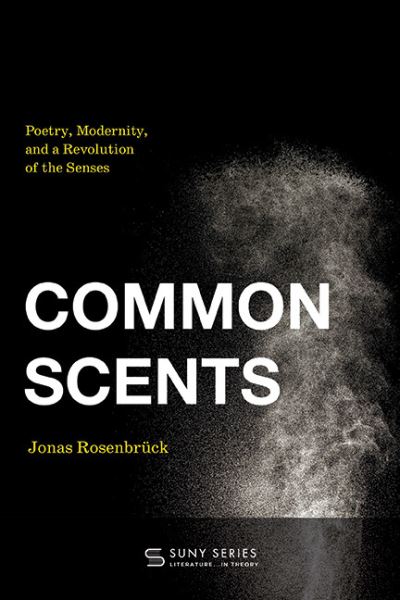
Attends to the much-neglected sense of smell in and around modern poetry to suggest the possibility of a revolution of the senses.
The sense of smell has long been the most neglected of the human senses in literature. Common Scents sets out to undo this forgetting of olfactory sense-making by tracing the appearance of odors in modern German and French poetry. Jonas Rosenbrück argues that smell's persistence undermines modernity's self-image as an ocular age and shows how scents index a veritable "revolution of the senses." Such a revolution, as a redistribution of the senses, would make the common and shared character of our existence in scented atmospheres perceptible.
Bringing contemporary ecocritical interest in atmospheres, air, and the senses into dialogue with literary criticism, theories of modernity, and political philosophy, Common Scents provides novel interpretations of figures such as Friedrich Hölderlin, Charles Baudelaire, Friedrich Nietzsche, and Bertolt Brecht. These readings demonstrate how all terrestrial life is interlinked in the aerial commons that escapes the privatizing grasp of what Karl Marx called the "sense of having." Reformulating Bruno Latour, Rosenbrück argues that we have never been deodorized. In attending to this fact, Common Scents reconfigures subjectivity, corporeality, and politics.
| ISBN: | 9781438499703 |
| Publication date: | 2nd April 2025 |
| Author: | Jonas Rosenbrück |
| Publisher: | SUNY Press an imprint of State University of New York Press |
| Format: | Paperback |
| Pagination: | 248 pages |
| Series: | SUNY Series, Literature...in Theory |
| Genres: |
Comparative literature Philosophy: aesthetics Social and political philosophy Literary studies: c 1800 to c 1900 Literature: history and criticism |